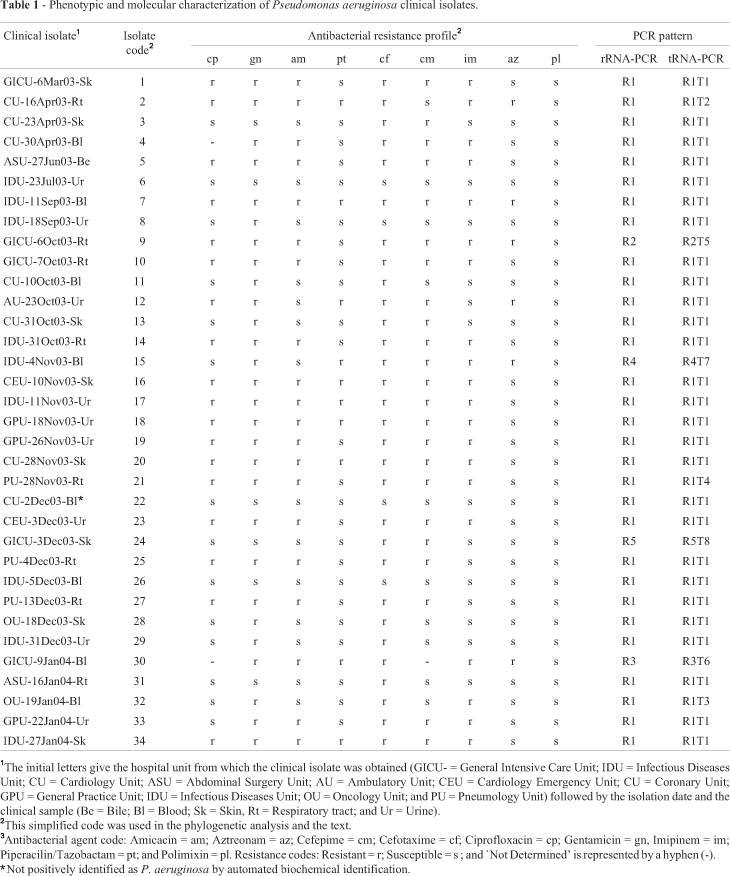The Gram-negative bacterium Pseudomonas aeruginosa has a wide environmental and ecological distribution. It is an opportunistic pathogen that acquires resistance to multiple antimicrobial agents and can infect plants, animals and humans. We used rDNA and tDNA PCR markers to characterize the bacterial diversity of P. aeruginosa strains isolated at a Brazilian teaching hospital (Oswaldo Cruz University Hospital, Recife, Brazil) between March 2003 and February 2004. Clonal groups of P. aeruginosa clinical isolates were identified from different patients in different hospital units using either rDNA or tDNA markers, or a combination of both in a duplex PCR. These PCR-typing methods together with drug-resistance profiles were used to trace the distribution of antibiotic resistant P. aeruginosa clones and to identify cross-infection of the same patient with a different bacterial clone after being moved to a different hospital unit. The data presented here demonstrates a rapid, reliable and useful method for epidemiological surveillance that can contribute to the control of P aeruginosa infections in hospital environments.
antibiotic resistance; molecular typing; nosocomial infection; P. aeruginosa; rDNA-PCR; tDNA-PCR






